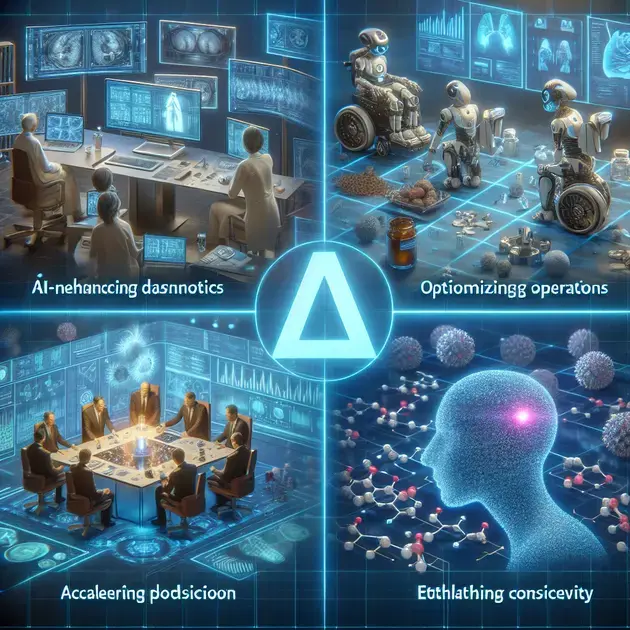
When it comes to **keyword**, staying ahead of the ever-changing landscape is crucial for any online business. With search engines constantly updating their algorithms, it’s important to have a solid SEO strategy in place to ensure your website ranks well in the SERPs.
One recent trend in the world of SEO is the increasing importance of user experience. Search engines like Google are placing more emphasis on factors such as site speed, mobile-friendliness, and quality content when determining search rankings. This shift means that businesses need to focus not only on keywords but also on providing value to their visitors to succeed in the competitive online market.
Harnessing the Power of Artificial Intelligence
Artificial Intelligence (AI) is revolutionizing the way we approach SEO strategies, providing tools and insights that were previously unimaginable. One key aspect of harnessing the power of AI for SEO is through the use of AI-driven analytics tools. Platforms like Google Analytics and SEMrush offer AI-powered features that can analyze data much faster and more accurately than manual methods.
To start harnessing AI for SEO, it’s essential to first understand the basics of how AI technology works in the context of search engine optimization. Websites like Moz and Search Engine Land offer comprehensive guides and tutorials on AI in SEO, breaking down complex algorithms and machine learning processes into digestible information.
Once you have a grasp of the fundamentals, you can start incorporating AI-driven SEO strategies into your digital marketing efforts. Tools like BrightEdge and MarketMuse provide AI-powered content optimization features that can help you improve your website’s search engine rankings by analyzing keyword performance and suggesting relevant content optimizations.
Continuously staying updated on the latest AI developments in SEO is crucial for leveraging this technology to its full potential. Following industry blogs and attending webinars by AI experts like Neil Patel can provide valuable insights and tips on how to stay ahead of the curve in AI-driven SEO strategies.
By harnessing the power of artificial intelligence in SEO, businesses can gain a competitive edge in the digital landscape, drive more organic traffic to their websites, and ultimately improve their online visibility and brand reputation.
Revolutionizing SEO Strategies with AI
The integration of artificial intelligence (AI) into SEO strategies is revolutionizing the way businesses approach digital marketing. One of the key ways AI is transforming SEO is through the use of natural language processing (NLP) algorithms, which can help search engines better understand and rank content based on user intent.
To revolutionize your SEO strategies with AI, consider utilizing tools like IBM Watson and RankBrain, which leverage machine learning to analyze and interpret user queries, enabling websites to deliver more relevant and personalized search results. Websites like Search Engine Journal and HubSpot offer in-depth guides on how to implement AI-powered NLP algorithms in your SEO strategy.
Another aspect of revolutionizing SEO strategies with AI is through the use of predictive analytics. Platforms like Conductor and Ahrefs provide AI-driven predictive analytics features that can forecast future keyword trends and help businesses optimize their content strategy in advance. By incorporating predictive analytics into your SEO efforts, you can stay ahead of the competition and proactively adapt to evolving search trends.
Experimenting with AI-powered chatbots and voice search optimization is also essential for revolutionizing SEO strategies in the age of artificial intelligence. Websites like Chatfuel and Dialogflow offer user-friendly interfaces for creating AI chatbots that can enhance the user experience and drive engagement on your website.
Overall, by integrating AI technologies into SEO strategies, businesses can revolutionize their digital marketing approach, improve search engine rankings, and deliver more personalized and engaging content to their target audiences.
Maximizing Website Performance with AI
Artificial Intelligence (AI) has the potential to significantly enhance website performance by optimizing various aspects of site management and user experience. One way to maximize website performance with AI is through the use of AI-powered website builders like Wix ADI and Bookmark’s AIDA, which can automatically create and customize websites based on user inputs and preferences.
To maximize website performance with AI, consider leveraging tools like Google PageSpeed Insights and GTmetrix, which utilize AI algorithms to analyze website speed and performance metrics. These tools can provide actionable insights and recommendations for improving site performance, such as optimizing images, minifying CSS and JavaScript files, and implementing caching mechanisms.
Implementing AI-driven personalization features on your website can also help maximize performance by delivering tailored content and recommendations to individual users. Platforms like Dynamic Yield and Adobe Target offer AI-powered personalization tools that can enhance user engagement, increase conversion rates, and ultimately improve overall website performance.
Utilizing AI for website security and fraud prevention is another crucial way to maximize performance and protect your site from cyber threats. Solutions like Cloudflare and Imperva use AI algorithms to detect and mitigate security risks in real-time, safeguarding your website from malicious attacks and ensuring uninterrupted performance for your visitors.
By harnessing the power of artificial intelligence to maximize website performance, businesses can create faster, more personalized, and secure online experiences that drive growth, enhance user satisfaction, and ultimately lead to greater success in the digital realm.
**The Role of Artificial Intelligence in Healthcare**
Introduction
Artificial Intelligence (AI) is revolutionizing the healthcare industry by providing cutting-edge solutions to improve patient care, optimize operations, and enhance research and development. One of the key areas where AI is making a significant impact is in the diagnosis and treatment of diseases. By analyzing large amounts of data, AI can identify patterns and trends that humans may overlook, leading to more accurate and timely diagnoses.
Enhanced Diagnostics
AI-powered systems can analyze medical images, such as X-rays and MRIs, with incredible precision, helping healthcare professionals detect abnormalities and diseases at an early stage. This not only improves patient outcomes but also reduces the likelihood of costly and invasive procedures. Furthermore, AI can assist in genetic testing and personalized medicine, tailoring treatment plans to individual patients based on their unique genetic makeup.
Operational Efficiency
AI algorithms can streamline hospital operations by optimizing patient flow, predicting staffing needs, and automating routine tasks. This allows healthcare providers to focus more on patient care and less on administrative duties, ultimately improving the overall efficiency of healthcare facilities. Additionally, AI can help in managing electronic health records securely and ensuring compliance with regulations.
Drug Discovery and Development
AI is accelerating the drug discovery process by analyzing vast amounts of biological data to identify potential drug candidates and predict their efficacy. This not only expedites the development of new medications but also reduces the costs associated with traditional drug discovery methods. AI can also assist in clinical trials by identifying suitable candidates and monitoring their response to treatments in real-time.
Ethical Considerations
While AI offers numerous benefits to the healthcare industry, it also raises ethical concerns regarding patient privacy, data security, and algorithm bias. It is crucial for healthcare organizations to implement robust data protection measures, ensure transparent AI algorithms, and address potential biases to maintain trust and credibility with patients and regulatory bodies. Striking a balance between innovation and ethics is essential for the successful integration of AI in healthcare.
**
Conclusion
**
In conclusion, Artificial Intelligence (AI) is playing a pivotal role in transforming the healthcare landscape, offering advanced solutions that enhance patient care, streamline operations, and drive innovations in research and development. Through sophisticated data analysis, AI is revolutionizing disease diagnosis and treatment, enabling healthcare professionals to make more accurate and timely decisions that ultimately improve patient outcomes.
Enhanced Diagnostics:
AI-powered systems are revolutionizing medical imaging analysis, enabling precise detection of diseases and abnormalities at early stages. This not only enhances patient outcomes but also minimizes the need for invasive procedures, leading to more cost-effective healthcare delivery. Moreover, AI-driven genetic testing and personalized medicine are reshaping treatment strategies by tailoring plans to individual genetic profiles, ensuring personalized healthcare solutions.
Operational Efficiency:
AI algorithms are optimizing hospital workflows by forecasting staffing requirements, streamlining patient flow, and automating routine tasks. This transformation allows healthcare providers to focus on delivering quality patient care while reducing administrative burdens, ultimately boosting overall efficiency within healthcare institutions. Additionally, AI is safeguarding electronic health records and ensuring regulatory compliance, bolstering data security and privacy.
Drug Discovery and Development:
AI is revolutionizing drug discovery by swiftly analyzing vast biological datasets to identify potential drug candidates and predict their effectiveness. This expedites the drug development process, cuts down costs associated with traditional methods, and enhances the speed of medication innovations. In clinical trials, AI leverages real-time monitoring and candidate selection to optimize treatment outcomes and drive progress in medical research.
The ethical considerations surrounding AI in healthcare, such as patient privacy, data security, and algorithmic bias, underscore the importance of implementing robust data protection measures and transparent algorithms. By fostering a balance between innovation and ethical practices, healthcare organizations can ensure patient trust and regulatory adherence, laying a solid foundation for the successful integration of AI technologies in healthcare.
